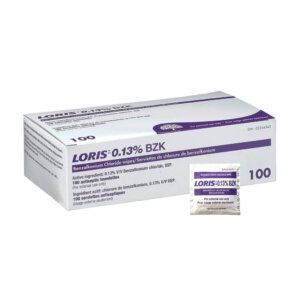
This article provides an informative and evidence-based exploration of the benefits and significance of natural health supplements in promoting overall well-being. It begins by discussing the key nutrients essential for maintaining good health and explores the various ways in which natural health supplements can contribute to one’s overall wellness.
Additionally, it offers practical tips on selecting appropriate supplements and incorporating them into daily routines. By adopting a holistic approach, this article enhances readers’ understanding of how natural health supplements can nourish their physical and mental well-being.
The Benefits of Natural Health Supplements
The benefits of natural health supplements include improved overall well-being and enhanced nutrient intake. Natural health supplements play a crucial role in preventing chronic diseases and promoting optimal health.
One key aspect is the importance of quality control in ensuring the safety and efficacy of these supplements. Quality control measures, such as rigorous testing for purity, potency, and contaminants, are vital to guaranteeing that natural health supplements meet specific standards. By adhering to stringent quality control protocols, manufacturers can ensure that consumers receive safe and effective products.
Additionally, natural health supplements have been shown to provide various nutrients that may be lacking in a person’s diet. These nutrients can support immune function, promote healthy aging, boost energy levels, enhance cognitive function, and improve cardiovascular health.
Thus, incorporating natural health supplements into one’s lifestyle can contribute positively to overall well-being and help prevent chronic diseases.
Key Nutrients for Well-being
Vitamin D is an essential nutrient that plays a crucial role in promoting overall health and wellness.
It functions as a prohormone, influencing the expression of over 1,000 genes involved in various physiological processes.
The primary source of vitamin D is sunlight, but it can also be obtained through certain foods and supplements.
Adequate levels of vitamin D are necessary for bone health, as it facilitates calcium absorption and utilization.
Additionally, research has shown that this vitamin may have potential benefits beyond bone health, including immune function regulation and prevention of chronic diseases such as cardiovascular disease and cancer.
While a healthy diet should provide enough vitamin D, supplementation may be necessary for individuals with limited sun exposure or specific medical conditions.
Choosing the Right Natural Health Supplements
A critical factor to consider when selecting appropriate dietary additions is evaluating their efficacy and safety based on scientific evidence. Understanding the effectiveness of natural health supplements requires a holistic approach that takes into account both the benefits and potential risks associated with their use.
One common misconception about natural health supplements is that they are always safe because they are derived from natural sources. While it is true that many natural compounds have beneficial effects on health, it is important to remember that not all substances found in nature are safe for consumption in concentrated forms. Some natural supplements may interact with medications or have adverse effects on certain individuals, highlighting the need for caution and consultation with healthcare professionals before incorporating them into one’s diet.
Another common misconception is that natural health supplements can cure or prevent diseases. While some supplements may support overall well-being and provide essential nutrients, they should not be seen as a replacement for medical treatments or preventive measures recommended by healthcare providers.
Tips for Incorporating Supplements Into Your Routine
One crucial consideration when incorporating dietary additions into one’s routine is to ensure proper dosage and adherence to recommended guidelines. Creating a supplement schedule can help individuals stay organized and consistent with their intake.
It is important to consult with a healthcare professional or nutritionist to determine the appropriate dosages for specific supplements based on individual needs, age, gender, and overall health status. Common mistakes to avoid when taking supplements include exceeding recommended dosages, assuming that more is better, neglecting potential interactions with medications or existing health conditions, and relying solely on supplements rather than maintaining a balanced diet.
Additionally, it is essential to choose reputable brands that undergo rigorous quality testing and adhere to industry standards. Regular monitoring of the effectiveness of the supplements should also be done in consultation with healthcare professionals.
Enhancing Your Well-Being With Natural Health Supplements
Enhancing overall wellness through the consumption of dietary additions is a multifaceted approach that involves considering various factors such as dosage, adherence to guidelines, and potential interactions with medications or existing health conditions.
Natural health supplements have gained popularity for their potential benefits in boosting immunity and improving digestion. Several studies suggest that certain supplements can support immune function by increasing the production of immune cells and enhancing their activity. Examples include vitamin C, zinc, and probiotics.
Additionally, some natural health supplements like digestive enzymes and fiber can aid in digestion by breaking down food molecules more effectively and promoting regular bowel movements.
It is important to note that while these supplements may offer potential benefits, consulting with a healthcare professional is advised to ensure safe usage and appropriate dosages based on individual needs.








